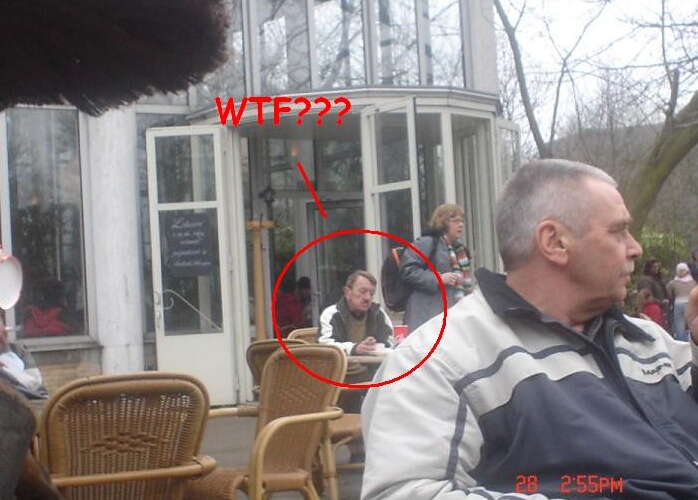Report: Most-wanted Nazi died in 1992
Documents surface showing that concentration camp doctor died in Cairo
The Associated Press
updated 6:05 p.m. ET, Wed., Feb. 4, 2009
BERLIN - Documents have surfaced in Egypt showing the world’s most-wanted Nazi war criminal, concentration camp doctor Aribert Heim, died in Cairo in 1992, Germany’s ZDF television and The New York Times reported Wednesday.
The report said Heim was living under a pseudonym and had converted to Islam by the time of his death from intestinal cancer.
ZDF said that in a joint effort with the New York Times, it located a passport, application for a residence permit, bank slips, personal letters and medical papers — in all more than 100 documents — left behind by Heim in a briefcase in the hotel room where he lived under the name Tarek Hussein Farid.
ZDF quoted Heim’s son Ruediger Heim as confirming the pseudonym as his father’s assumed name and the documents as belonging to him. Heim said he visited his father regularly in Cairo and had taken care of him after an operation related to his cancer in 1990.
Simon Wiesenthal Center head Nazi hunter Efraim Zuroff said he has not seen the documents and that while it seems that there is “definitely a strong possibility” they point to Heim’s death in Cairo 16 years ago, they need to be examined by experts.
If it turns out to be true, however, he said that “the German police have a very important investigation on their hands in terms of prosecuting people who helped Aribert Heim escape justice.”
He pointed out that Ruediger Heim has previously said that the only contact he had since his father went into hiding in 1962 were two notes that appeared in his family’s mailbox, and that he had no idea if he was alive or dead.
Son was lying?
“Ruediger has been lying,” Zuroff told The Associated Press in an interview from Jerusalem. “Either he is lying now or he was lying before, and he has a vested interest in this so anything he says has to be taken with a certain amount of skepticism and suspicion — and the most important thing is missing: the body. There’s no grave, there’s no corpse, there’s no DNA tests.”
Ruediger Heim could not be immediately be reached for comment.
ZDF reported that Heim was buried in a cemetery for the poor in Cairo, where graves are reused after several years “so that the chance of finding remains is unlikely.”
Born June 28, 1914 in Radkersburg, Austria, Heim joined the local Nazi party in 1935, three years before Austria was bloodlessly annexed by Germany.
He later joined the Waffen SS and was assigned to Mauthausen, a concentration camp near Linz, Austria, as a camp doctor in October and November 1941.
While there, witnesses told investigators, he worked closely with SS pharmacist Erich Wasicky on such gruesome experiments as injecting various solutions into Jewish prisoners’ hearts to see which killed them the fastest.
In 1961, German authorities were alerted that Heim was living in Baden-Baden and began an investigation, but when they finally went to arrest him in September 1962, they just missed him — he apparently had been tipped off.
Heim would be 94 today if still alive.
Copyright 2009 The Associated Press. All rights reserved. This material may not be published, broadcast, rewritten or redistributed.





